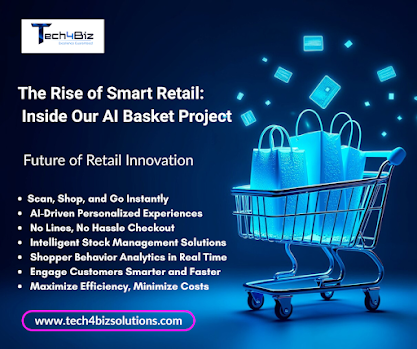Elevate Your Digital Transformation Journey with Smart Cloud Technology
Digital transformation has become a cornerstone of modern business strategy, driving innovation, efficiency, and customer-centricity. However, achieving successful transformation requires more than adopting new tools—it demands the integration of smart cloud technology. By leveraging cloud-powered solutions, businesses can streamline operations, foster collaboration, and unlock new growth opportunities. This article explores how smart cloud technology elevates digital transformation journeys and empowers businesses to thrive in a dynamic digital landscape.
The Role of Cloud Technology in Digital Transformation
At its core, digital transformation is about using technology to enhance business processes, improve customer experiences, and drive innovation. Cloud technology plays a pivotal role in this transformation by providing scalable, flexible, and on-demand resources that adapt to evolving business needs. With cloud-based solutions, businesses can deploy new services faster, reduce operational complexity, and innovate without the limitations of traditional infrastructure.
Smart cloud technology takes this a step further by incorporating advanced capabilities such as artificial intelligence (AI), machine learning (ML), and automation. These features enable businesses to gain deeper insights, make data-driven decisions, and optimize workflows in real time.
Seamless Scalability for Growing Business Needs
One of the most significant advantages of smart cloud technology is its scalability. As businesses grow and their needs evolve, cloud platforms can easily scale up or down to accommodate changing demands. This flexibility is essential for companies that experience seasonal fluctuations, rapid growth, or sudden spikes in customer activity.
For example, an e-commerce retailer can scale its cloud infrastructure during peak shopping seasons to handle increased traffic and transactions. Similarly, a financial services firm can leverage cloud resources to support new digital banking initiatives. By eliminating the need for costly hardware upgrades and lengthy deployment timelines, businesses can stay agile and responsive.
Accelerating Innovation with Cloud-Native Services
Innovation is at the heart of digital transformation, and cloud-native services enable businesses to bring new ideas to life faster. Serverless computing, containerization, and microservices architectures allow development teams to build, test, and deploy applications with speed and efficiency.
Cloud-native technologies also support continuous integration and continuous deployment (CI/CD) practices, which automate the software delivery pipeline. This automation reduces the time it takes to release new features and updates, enabling businesses to iterate quickly and stay ahead of the competition. With smart cloud technology, innovation becomes a continuous process rather than a one-time initiative.
Enhanced Collaboration and Connectivity
Smart cloud technology fosters collaboration by providing unified platforms for communication, document sharing, and project management. Remote and distributed teams can work together seamlessly, accessing shared resources and real-time updates from any location.
Cloud-based collaboration tools also break down silos and promote transparency, ensuring that all team members have access to the same information. This connectivity is crucial for businesses that prioritize agility and customer-centricity, as it enables faster decision-making and more effective problem-solving.
Data-Driven Insights for Informed Decision-Making
Data is a valuable asset in the digital age, and smart cloud technology empowers businesses to harness its full potential. Cloud analytics platforms offer advanced capabilities for collecting, processing, and analyzing data in real-time, providing actionable insights that drive informed decision-making.
For instance, predictive analytics tools can identify emerging market trends, forecast customer behavior, and recommend strategies for optimizing operations. Machine learning algorithms can also uncover patterns and anomalies in large datasets, helping businesses anticipate risks and seize new opportunities. By leveraging these insights, companies can make smarter decisions and stay ahead in a competitive marketplace.
Automation and Operational Efficiency
Automation is a key component of smart cloud technology, streamlining repetitive tasks and freeing up human resources for more strategic activities. Cloud automation tools can handle processes such as data backups, software updates, and resource provisioning, reducing the risk of errors and minimizing downtime.
Additionally, businesses can implement automated workflows that trigger actions based on predefined conditions. For example, an automated customer support system can route inquiries to the appropriate team members or provide instant responses using chatbots. By improving operational efficiency, automation enhances the overall customer experience and accelerates time-to-value.
Strengthening Security and Compliance
Security is a top priority for businesses undergoing digital transformation. Smart cloud technology provides robust security measures to protect sensitive data and applications. Features such as encryption, identity and access management (IAM), and threat detection help safeguard business assets from cyber threats.
Cloud providers also offer compliance tools and certifications to help businesses meet industry regulations and standards. By ensuring a secure and compliant environment, businesses can focus on growth and innovation with confidence.
Industry-Specific Cloud Solutions
Smart cloud technology is not a one-size-fits-all solution—many providers offer industry-specific solutions tailored to the unique needs of different sectors. For example, healthcare organizations can use cloud-based platforms for telemedicine and electronic health records (EHRs), while manufacturers can leverage smart cloud solutions for supply chain optimization and predictive maintenance.
These tailored solutions enable businesses to address specific challenges and opportunities in their industries, enhancing competitiveness and delivering superior value to customers.
Future-Proofing Your Business with Smart Cloud Technology
As digital transformation continues to evolve, businesses must stay ahead of emerging trends and technologies. Smart cloud technology provides the foundation for future-proofing operations by enabling continuous innovation, scalability, and adaptability.
By embracing cloud-powered solutions, companies can position themselves for long-term success in a rapidly changing digital landscape. Whether it’s enhancing customer experiences, improving operational efficiency, or driving new revenue streams, smart cloud technology empowers businesses to achieve their transformation goals.
Conclusion: Elevate Your Digital Transformation Journey
Smart cloud technology is redefining how businesses approach digital transformation, offering unparalleled flexibility, innovation, and efficiency. By leveraging scalable infrastructure, cloud-native services, data-driven insights, and automation, companies can elevate their transformation journeys and thrive in a dynamic marketplace. For businesses looking to unlock new opportunities and stay competitive, smart cloud technology is the key to success in the digital age.



.png)
Comments
Post a Comment